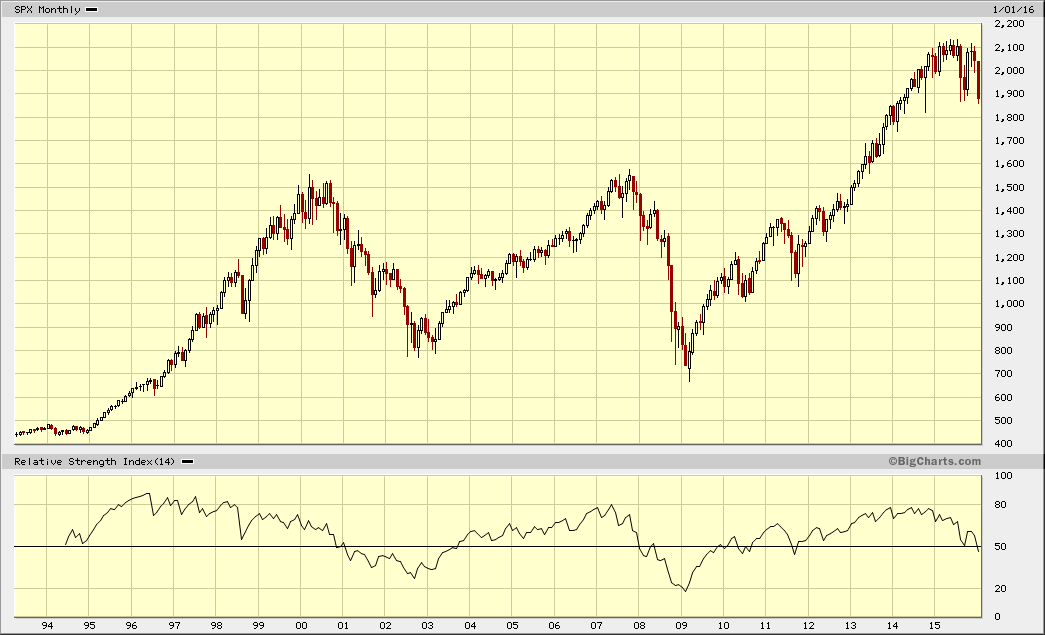It has come to my attention that, perhaps, the great stock bull market is done. To most people, a bull market is good, and its end is bad. After all, a rising market signifies a healthy economy. Investors are making money. And it seems to prove that the free market is validated, able to deliver miracles despite Obamacare. Share prices are connected to business productivity, aren’t they?

The Stock Market and the Economy
In a free market they are, of course. However—and this cannot be said too often—we don’t have a free market. We have monetary policy. This is how our central planners try to stimulate us. They create a wealth effect.
Whenever you come across a metaphor like wealth effect, I encourage you to ask what is actually happening. Obviously, the government can’t create wealth by decree Something else has to be happening. Let’s look at that.
The Illusion of the Wealth Effect
The term wealth effect is interesting. There are many other effects, such as the placebo effect and the cheerleader effect. In each effect, something manipulates your judgement. The placebo effect convinces you that you feel better. The cheerleader effect convinces you that a girl is prettier. And the wealth effect convinces you that you’re richer. They’re all just illusions.

S&P500 1993-2016: Rising Stocks and the Wealth Effect
The medical journals talk about why placebos do that, and the psychology journals analyze the cheerleaders. Our concern is to understand the wealth effect—not by the magical thinking offered by many so called economists—but through monetary science.
Mechanically, the wealth effect is a simple process. One, the Fed drives up the price of bonds. Two, investors begin to find bonds too pricey, so they switch out of bonds. Three, they buy stocks and real estate, the main alternatives to bonds. Four, stock and real estate owners feel richer. After all, their net worth is rising much faster than the cost of living. The wealth effect exploits the common assumption that your real wealth is your net worth divided by the cost of living. Five, people spend. If your wealth went from $150,000 to $250,000, you can spend part of the $100,000 profit, the reward of having invested wisely. All asset owners are empowered to spend.
Consumption of Capital
We’re painting a picture here, not of creating wealth, but spending it. The wealth effect is not about production, but consumption. To use my favorite farm analogy, the wealth-effected farmer is not operating his farm to grow crops. He’s just eating his seed corn.
It works, because your purchasing power is increasing. The price of corn isn’t going up (quite the opposite, it’s down 55 percent since 2012). But the assets you can swap for corn have risen significantly (stocks are up 28 percent over the same time period). The same house that could be traded for 2 years’ worth of corn, can now be swapped for maybe four. The same stock whose liquidation would pay for corn for a year, will pay for groceries for about three now. So people indulge themselves, and spend some of their gains.
Unfortunately, this is no real gain. The iron law of economics is that you must produce first, in order to consume. The Fed produces nothing when it drives up the price of your assets, and neither do you by simply holding them in the meantime.
The wealth effect, in reality, is a process of consuming precious capital, previously accumulated by hard working people who consumed less than they produced. Their savings now enable a whole class of people who consume more than they produce.
Fed monetary policy induces this consumption, by altering the purchasing power of assets. In other words, the ratio of asset prices to consumer prices is distorted. The more this playing field tilts, the more everyone runs downhill to the endless party.
Well, it seems endless while it lasts. And now it may be coming to its inevitable end.
Please take no shadenfreude—pleasure from someone else’s pain. For the sake of our civilization, we had better stop consuming the capital base on which it’s built.
The end of the wealth effect is a good thing.
See more for




















